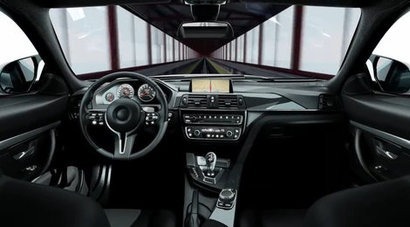
Caroline Jones Carrick created the TEV Project alongside her father, Will Jones, a battery expert and inventor. TEV (Tracked Electric Vehicles) is a highway design which directly powers electric and hybrid cars allowing them to charge as they travel, and facilitates driverless technology. The design addresses congestion issues and emissions, which are major concerns in India.
Participants at the 77th annual session of the Indian Roads Congress (IRC) will discuss issues surrounding the current road transport system, increased emissions and fossil fuel consumption, as well as the main challenges. Ms Carrick is aiming to identify ways in which TEV could adopt these future technologies to benefit not just India, but transport systems on a global scale.
“With the scale of the transportation issues affecting India and the IRCs pivotal role in shaping the future, I welcome the opportunity to meet government officials and other professionals working to achieve the same goals as TEV” she said. “To hear what is affecting the transport system in India and what solutions are being suggested from other parts of the world is very exciting. Sharing knowledge could lead to some real progress and action to solve India’s infrastructure crisis. When it comes to issues like congestion and emissions, the problems aren’t India’s alone. All across the world people love their cars and we need to plan ways to handle them better. We need to look at how we can overhaul outdated road infrastructure and influence the key decision makers to consider affordable and sustainable options, like TEV. The only way to address increasingly urgent transport issues is by facing the future.”
Ms Carrick added that TEV is achievable using existing technology and can easily adapt as new trends emerge whilst offering an affordable option for governments to adopt. The company facilitates electric vehicles which help lower emissions, and employs driverless technology to reduce congestion. The track can also be built to a universal design so can be adopted globally. It’s now a matter of discussing these options with other like-minded people, sharing ideas on future infrastructure and creating a better future for the way people travel.
Goldman Sachs predicts that at least $1.7 trillion would need to be pumped into infrastructure projects in the next decade to prevent economic growth from halting in India yet spending is currently only expected to be around $500 billion during that timeframe.
The IRC is the Apex Body of Highway Engineers in India and was set up under the recommendations of the Indian Road Development Committee by the Government of India. It also works closely with the Ministry of Road Transport and Highways which will enable discussions on the future of highways with key Government officials.
TEV Project (Tracked Electric Vehicles), is a solution designed to advance road infrastructure and the way people travel. It will enable electric cars and fleet vehicles to drive on a pre-fabricated, dedicated lane under full automatic control. This will allow passengers to travel safely at high speeds which, in turn, will enable vastly greater passenger carrying capacities compared with traditional motorways.
The project was developed by open-source as a social enterprise and is the vision of Will Jones, a respected inventor, an expert in battery design and founder of Philadelphia Scientific, a leading provider of products and services for industrial batteries and their infrastructure, operating from North America, Europe, Southeast Asia and Asia-Pacific.
For additional information:

